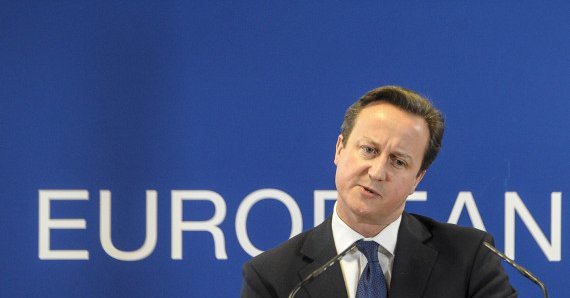In astatement to the press, the United Kingdom’s PM argued that the European Union needs more flexibility regarding the right of EU Member States to opt-out from EU policies. This call for more flexibility comes as a reaction to the Union’s decision to impose austerity measures to all its Member States, hence damaging the wellbeing of the European people. While this argument is understandable, and represents one solution, it might not be best adapted to the situation.
Ironically, the same David Cameron might hold an alternative solution to the current EU situation. In fact, in an inspiring 2010 Ted talk, he addressed the question of “how do we make things better without spending more money?” While this question initially aimed for nation States, it can easily be transposed to the European level. This is in fact, the exact same question that European leaders faced when they decided to impose austerity measures around the continent. It is thus interesting to further analyze Cameron’s argument and transpose it to the EU context.
In his talk, David Cameron observed three passage of history: the pre-bureaucratic age, the bureaucratic age, and the post-bureaucratic age in which, he argues, we now live. He notes that
“A simpler way of thinking of it is that we have gone from a world of local control, then we went to a world of central control, and now we’re in a world of people control. Local power, central power, now, people power.”
At the European level, however, it is often acknowledged that Union institutions represent a centralized and heavy bureaucratic “regional government” that can impose its will to nation States through political decisions made in Brussels. To draw a comparison with Cameron’s three passage of history, the European integration would refer to the passage from local to central power, at a larger scale.
Similarly, if we consider the European Union as a central power at regional level, the UK’s recent call for an increased right of the Member States to opt-out of EU policies, does not represent a step forward directing towards a European people power. In fact, while the current Union institutions are not adequate enough to make things better without spending more, EU Member States can achieve this objective only if they have already reached the post-bureaucratic government type that David Cameron described in his 2010 talk. Unfortunately, no State has so far reached such level of people power. Hence, increasing the power of States to op-out from EU legislations would be similar to returning from the age of central power to this of local power. In no way, would it represent a step towards a stronger post-bureaucratic government.
The next question we ought to ask is, how do we, then, reach this post-bureaucratic European government? Again, David Cameron’s talk provides us with some inspiring insights. In his talk, he argues that although new technologies and the accessibility to information have already modified parts of our societies, they have just not touched governments yet. He then expresses three ways through which governments can assist the creation of a post-bureaucratic government: by increasing transparency, increasing accountability to the people, and offering greater choice in available public services.
Again, although his suggestions aimed for nation States, they might be applicable to the European Union’s institutions as well. Instead of heading towards an exit of the EU, the United Kingdom should focus its efforts in strengthening EU transparency, ensuring direct accountability to the people through reforms of the European Parliament, and supporting efforts to promote new technologies through the EU digital Agenda. Actually, the UK might even find some advantages in moving in this direction at a European level because a larger market offers a lager number of choices for the people, hence more competition and more wellbeing.
To conclude, how do we make things better at the European level, without spending more? If we consider the European Union as a type of centralized and bureaucratic “regional government”, David Cameron’s 2010 Ted talk offers us two possible pathways: moving back to local power (i.e. sovereign States), or moving forward to people power. I believe that, instead of backing off from the EU as the UK’s Prime Minister lately argued, the time is now for Prime Minister Cameron to hold on to his dream of post-bureaucratic governments. It is now time to launch UK led initiatives towards a stronger EU digital Agenda, as well as treaty changes increasing EU transparency and accountability in order to truly empower the European people. It is by empowering the European people through a stronger European Parliament and more accessible information that the European Union will move forward, not by stepping down from regional to national level.

Follow the comments: |
|
